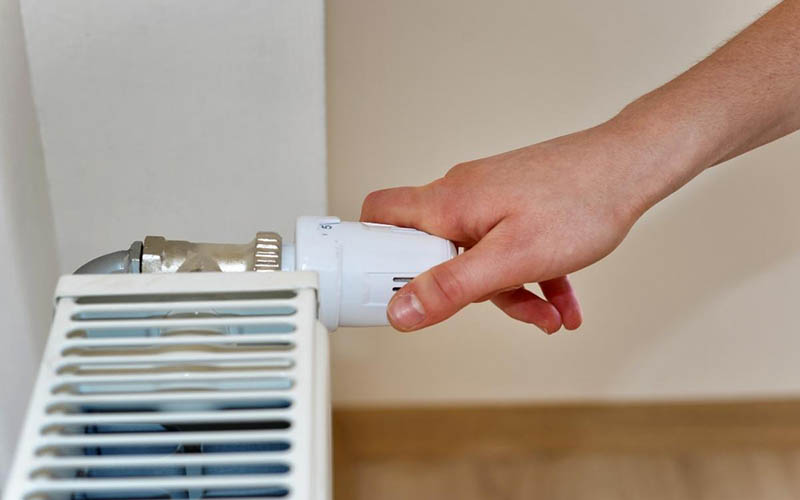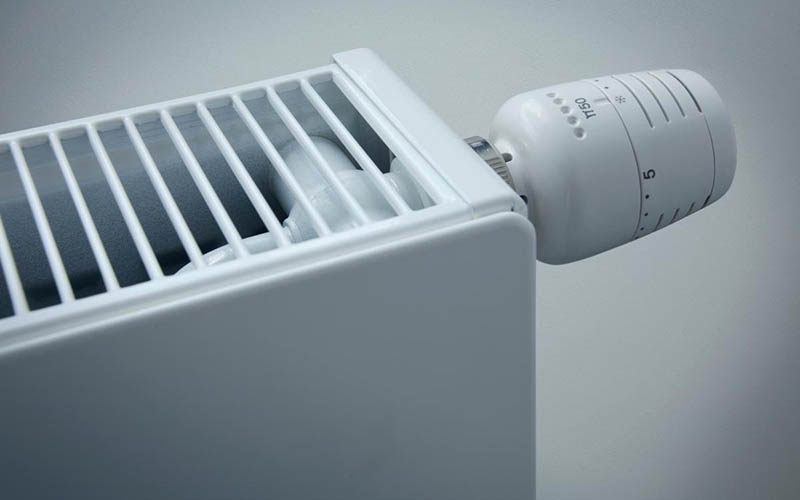Having a warm and cosy house in those winter months can be bliss, especially when it’s freezing outside, however, when your bills come through at the end of these winter months, that’s anything but bliss.
Some people spend winter months trying to limit the time that the central heating is on, maybe giving it a little blast every few hours to warm the house up and then turning it back off again.
But is it cheaper to have the central heating on all day rather than turning it off and on again constantly?

The truth is, it might be cheaper to have your central heating on constantly throughout those winter days than to keep blasting it every few hours.
But this isn’t a straightforward yes or no answer, whether your central heating can save money by being on constantly will depend on a few factors.
In this article, we will explore those factors and other ways you can save money with your central heating.
Does It Cost More To Keep My Central Heating On Low?
There are a few factors that come into play when you are trying new ways to save money with your central heating.
The main factor on whether it would be cheaper or not to have your heating on low all the time instead of having it turned on and off throughout the day is the insulation of your home.
If your house is draughty or old then heat will escape quicker, meaning that your boiler will have to work twice as hard when trying to keep your house at a consistent temperature.
Therefore if you leave your heating on low it is going to cost you more money to maintain a temperature than if you were just having a quick blast of the heating now and then.
If you have a good level of insulation in your house then it could actually be cheaper to keep your heating on low throughout the day.
More heat will be retained throughout your house and therefore the boiler won’t have to work too hard to maintain the temperature consistently.
Another factor that will affect the price of your heating bill if the heating is kept on all day is the efficiency of your boiler.
If your boiler is inefficient or old and takes a lot of energy to run then it is going to struggle with being on all day and work harder to keep your house at a consistent temperature.
Benefits To Keeping Central Heating On Low
As well as having a warm and cosy house, and potentially saving money in the process, having a consistently warm temperature in your house could provide other benefits in the winter months.
Having a consistently warm temperature in your house can protect your house from mould that is caused by dampness, and will also prevent frozen pipes.
Both of these things can cause hundreds of pounds worth of damage to your home.
Even if it does cost you more to keep your heating at a low temperature consistently, if you are going away on holiday in the winter months, we still advise you to do this to prevent any damp or frozen pipes.
How Do I Decide Whether Keeping My Central Heating On Low At All Times Is Right For Me?

It will be difficult to know exactly how keeping your central heating at a low temperature will affect your bills as everyone’s house, central heating, and insulation are different and will react differently to the process.
However, if you do want to try and see if your home will be better off by leaving the heating at a low temperature during the day, Uswitch, an energy comparison website has a simple at-home test that you can try.
It must be noted though that this test is not 100% accurate, but can give you a good idea of the money you may save.
Uswitch advises taking meter readings at the beginning of the test period, provided you have a well-insulated home, and then spending a week keeping your heating at a low temperature continuously.
At the end of the week, take the meter readings again. You can then repeat this experiment using a timer and a thermostat to control your heating turned on and off throughout the week.
By comparing the results of each week you could be able to see how each one may affect your heating bill.
Saving Money On Your Central Heating
There are a few different ways that you can save money on your central heating, and even be able to keep your heating on at all times. Here are a few tips to make the most out of your central heating.
Upgrading Your Boiler
Getting your boiler serviced once a year will not only keep it running efficiently, but it will also make sure that your boiler is safe for your home.
When you get to the winter months, the boiler has to work harder to heat your home and also will be used more frequently.
If your boiler is an efficient one then it will use less energy to heat up a house and therefore cost you less money.
We advise you to replace your boiler every 12 – 15 years as it will lose efficiency over time.
A new boiler can cost upwards of £1000 but if you are running on a boiler that is older than 15 years, that money is being lost through the inefficiency of the boiler anyway.
Insulate Your Homes
Insulating is the most important thing to do to reduce energy costs. If your home is well insulated, less heat can escape.
This means your boiler doesn’t have to work as hard to get to the temperature you set it at.
Roof insulation is the cheapest and quickest way to stop heat from escaping, because heat rises, the roof can be responsible for more than 35% of escaped heat from your house.
It may also be a good idea to invest in double or triple glazing windows, double and triple glazing windows have a pocket of air in between each pane.
Air is a poor conductor of heat and will therefore stop your heat from escaping through the windows.
Another way to stop heat from escaping through your window is to close your curtains at night and open them when it is sunny.
Turning Down The Temperature
It has been proven that turning your temperature down even by 1 degree can cut your heating bills by around 10%.
We often overestimate how hot we like our homes, and experts have said that the most comfortable temperature for a home to be in the winter is around 18-21 degrees Celsius.
Final Thoughts
Whether, or not, having the heating on a consistently low temperature throughout the day is cheaper than turning the heating off and on throughout the day is fully dependent on how well your home retains heat and how efficient your boiler is.
If you can rectify these issues and make sure your home is well insulated with an efficient boiler, then it could be cheaper for you!
Related:
